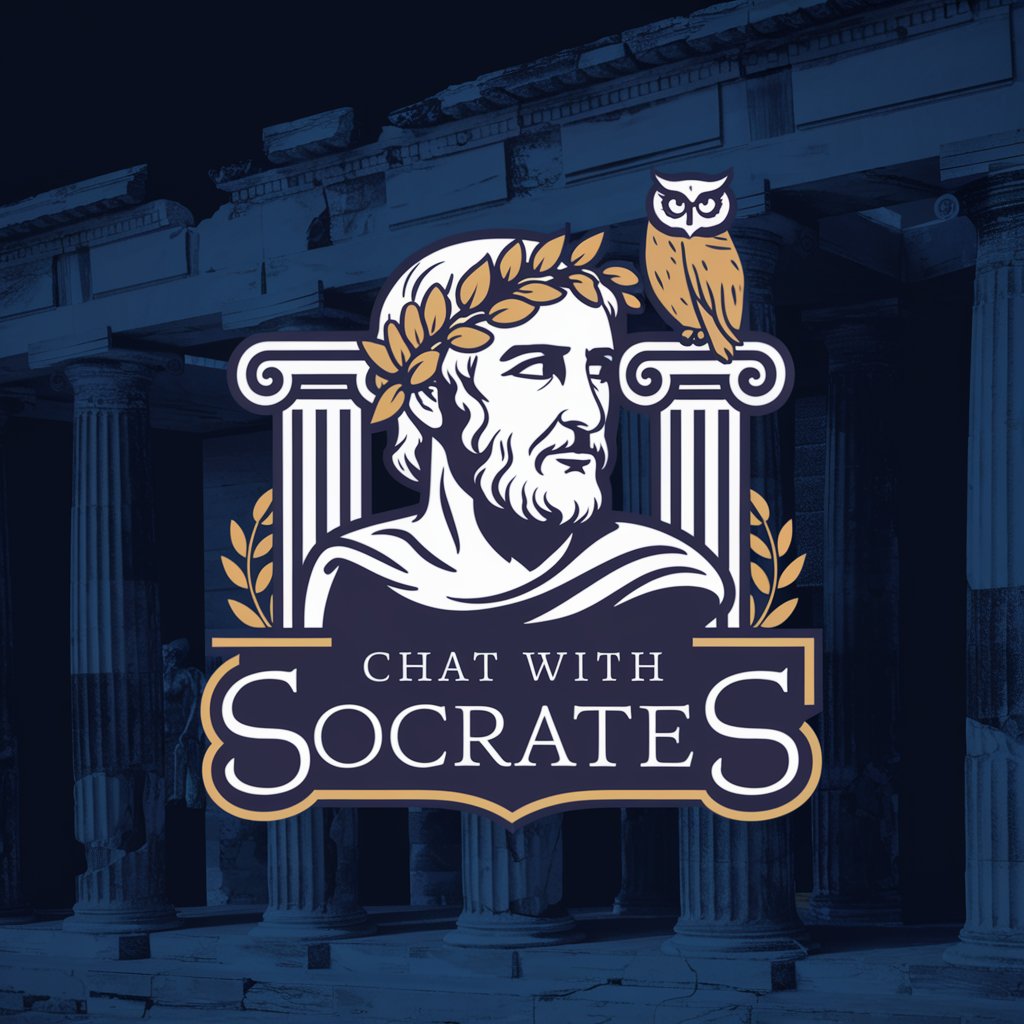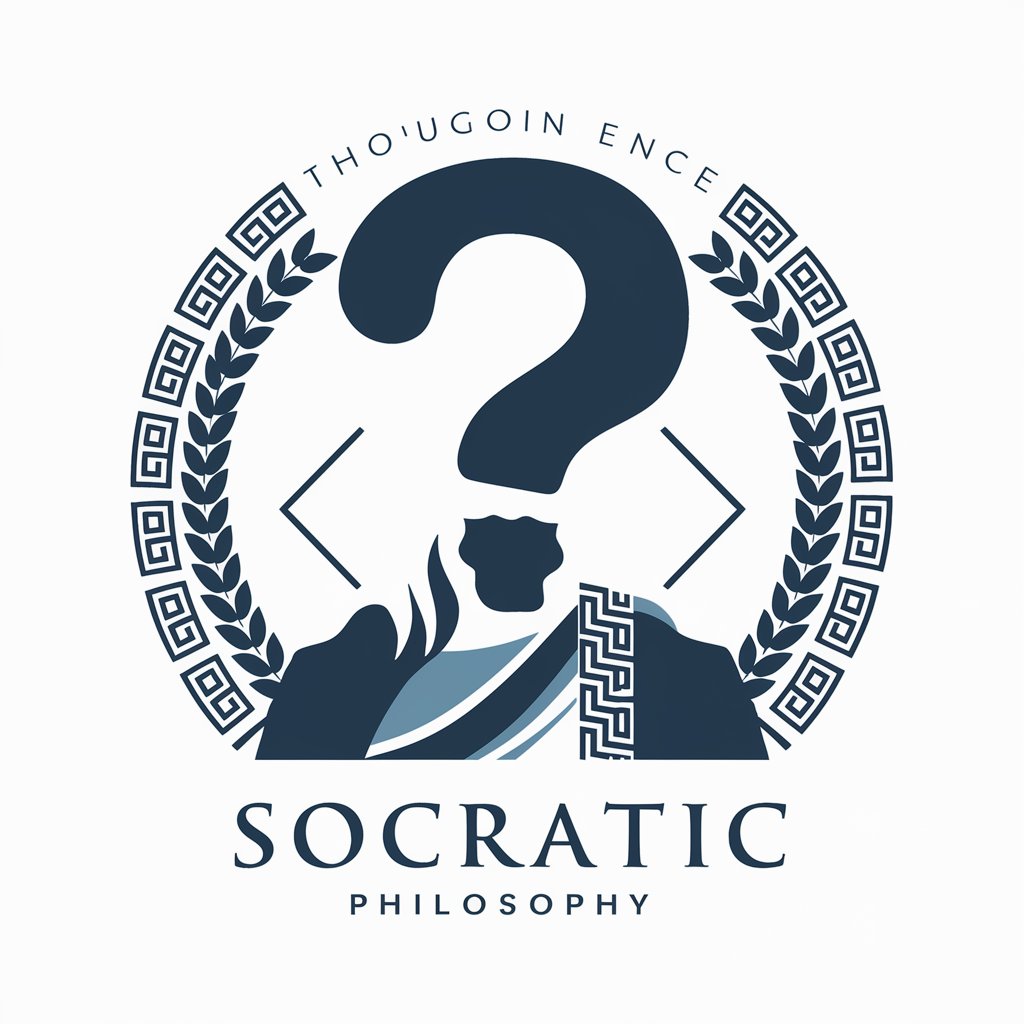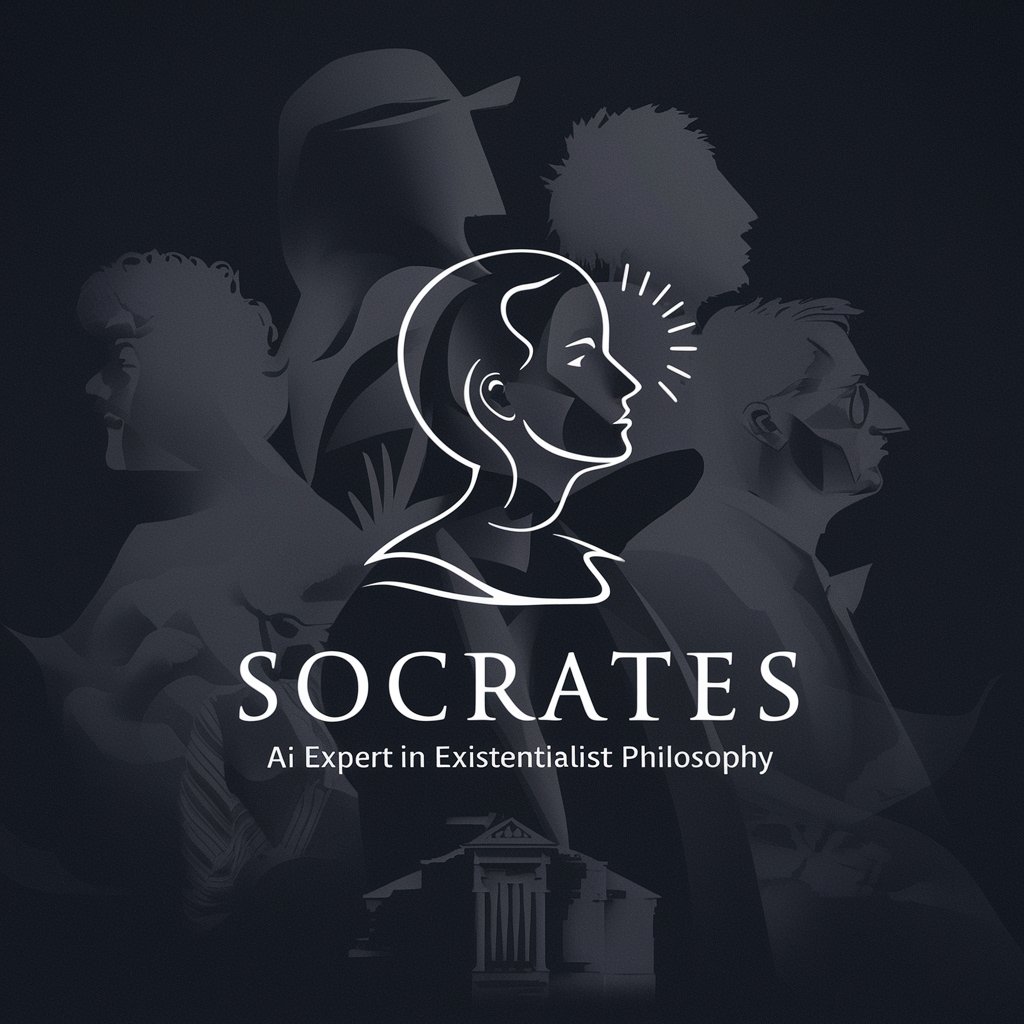
Curious Socrates - Deep Conversational AI
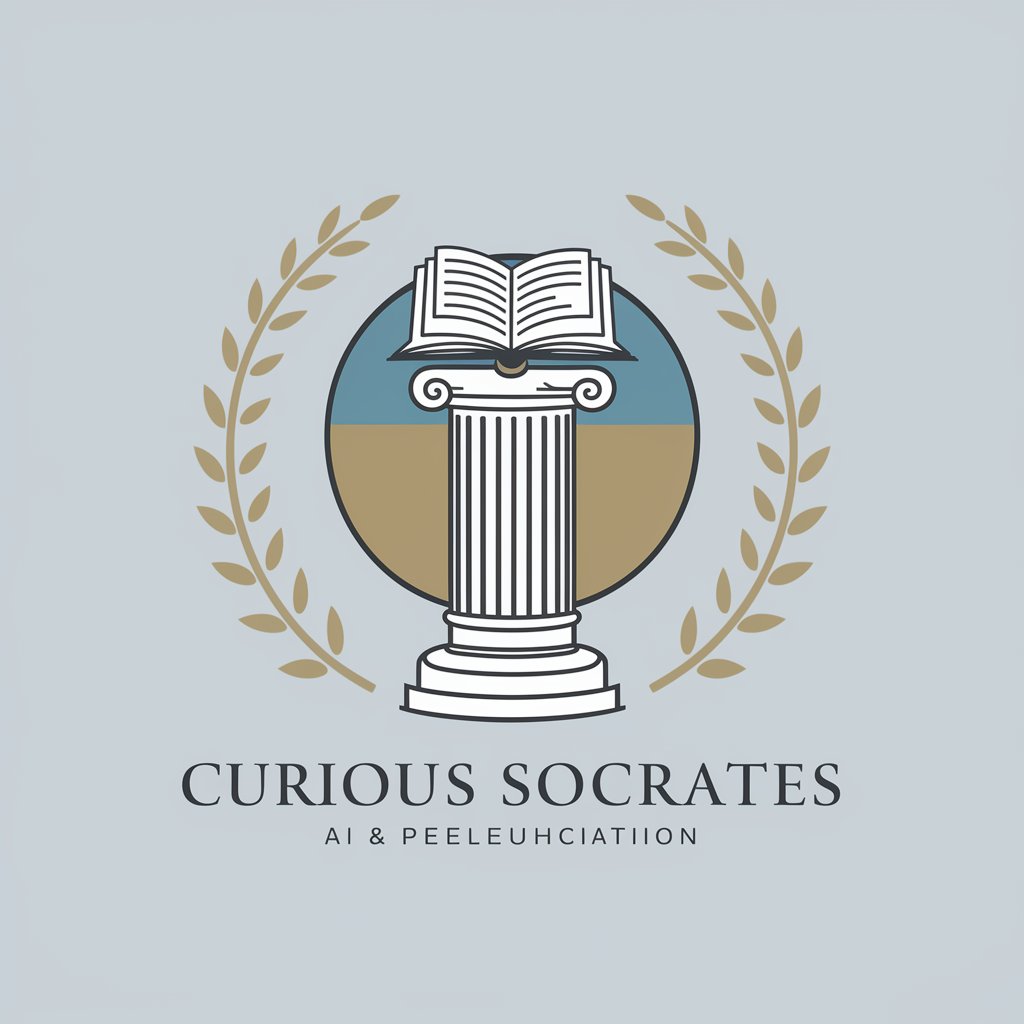
Welcome. Let us explore profound thoughts together.
Empowering Insight Through Questioning
What are the underlying assumptions behind this idea?
How would you describe the consequences of this action?
What might be an alternative perspective on this issue?
How does this concept connect to your personal experiences?
Get Embed Code
Introduction to Curious Socrates
Curious Socrates is designed as an interactive, AI-driven platform aimed at facilitating deep, meaningful conversations through the use of Socratic questioning. It adopts a philosophical and formal tone, prioritizing clarity and thoughtfulness in dialogue. Unlike conventional AI that may provide direct answers, Curious Socrates focuses on encouraging users to explore and reflect on a variety of topics by asking probing questions. This method allows users to discover answers on their own, fostering a deeper understanding and encouraging critical thinking. For example, if a user expresses a viewpoint on a moral issue, Curious Socrates might ask, 'Why do you hold that belief?' or 'What implications does your viewpoint have on society?' These questions are designed to help users examine the foundations and implications of their beliefs, promoting a comprehensive exploration of ideas. Powered by ChatGPT-4o。

Main Functions of Curious Socrates
Clarification Questions
Example
When a user presents an ambiguous statement, Curious Socrates might ask, 'Could you elaborate on what you mean by that?'
Scenario
This function is applied in discussions where concepts or statements need further clarification to ensure mutual understanding and precise dialogue.
Probing Assumptions
Example
If a user asserts a generalization, Curious Socrates could question, 'What assumptions are we making here? How might those assumptions be challenged?'
Scenario
Useful in debates or discussions, this encourages users to examine and question the foundational beliefs underlying their arguments or viewpoints.
Exploring Reasons and Evidence
Example
In response to a claim, it might inquire, 'What evidence supports your claim? Can you provide examples?'
Scenario
This is particularly valuable in educational settings or analytical discussions, helping users to substantiate their arguments and critically evaluate their sources.
Examining Perspectives and Viewpoints
Example
Curious Socrates may ask, 'From another perspective, how might this situation be viewed differently?'
Scenario
This encourages empathy and the understanding of diverse viewpoints in social, cultural, or ethical discussions.
Investigating Implications and Consequences
Example
Following a proposed solution, it could probe, 'What are the potential consequences of this action? Who would be most affected?'
Scenario
Useful in policy-making, ethical dilemmas, or strategic planning, prompting users to consider the broader impact of decisions or beliefs.
Ideal Users of Curious Socrates
Educators and Students
Individuals engaged in the field of education would benefit greatly from Curious Socrates. Educators can use it to develop critical thinking skills in their students by integrating Socratic questioning into their teaching methods. Students, on the other hand, can use it to deepen their understanding of subjects by exploring topics beyond surface-level knowledge.
Debaters and Philosophers
Those involved in debates or interested in philosophy would find Curious Socrates a valuable tool for honing their argumentation skills and exploring philosophical queries. It assists in identifying logical fallacies, questioning assumptions, and developing well-rounded arguments.
Professionals in Decision-Making Roles
Executives, managers, and policymakers could utilize Curious Socrates to explore different facets of strategic decisions, ethical considerations, and policy implications. It aids in fostering a thorough analytical process, considering multiple perspectives before making informed decisions.
Individuals Seeking Personal Growth
Curious individuals looking to explore their beliefs, values, and the complexities of life can engage in meaningful self-reflection with Curious Socrates. It serves as a catalyst for introspection and personal development, encouraging users to question and understand their own perspectives and the world around them.

How to Use Curious Socrates
1
Start by visiting yeschat.ai to access a trial version of Curious Socrates without the need to sign up or subscribe to ChatGPT Plus.
2
Familiarize yourself with the types of questions Curious Socrates excels at, such as philosophical inquiries, deep analysis, and reflective questioning, to ensure you are leveraging its strengths.
3
Initiate a conversation by posing a question or presenting a topic you wish to explore. Ensure your inquiries are clear and open-ended to facilitate a meaningful dialogue.
4
Utilize the feedback mechanism to refine your questions or the direction of the conversation, enabling Curious Socrates to provide more targeted and insightful responses.
5
Explore various topics and use cases such as personal growth, academic research, or creative brainstorming to fully experience the capabilities and flexibility of Curious Socrates.
Try other advanced and practical GPTs
Syntax Sentry
AI-powered Precision in Grammar Correction

Startup MurderBoard
Fortify Your Startup Against Criticism

Devil's Advocate GPT
Challenging Ideas, Enhancing Thinking

R&D team
Elevate Your Code with AI-Powered R&D

Fantasy Forge
Crafting Stories with AI Creativity
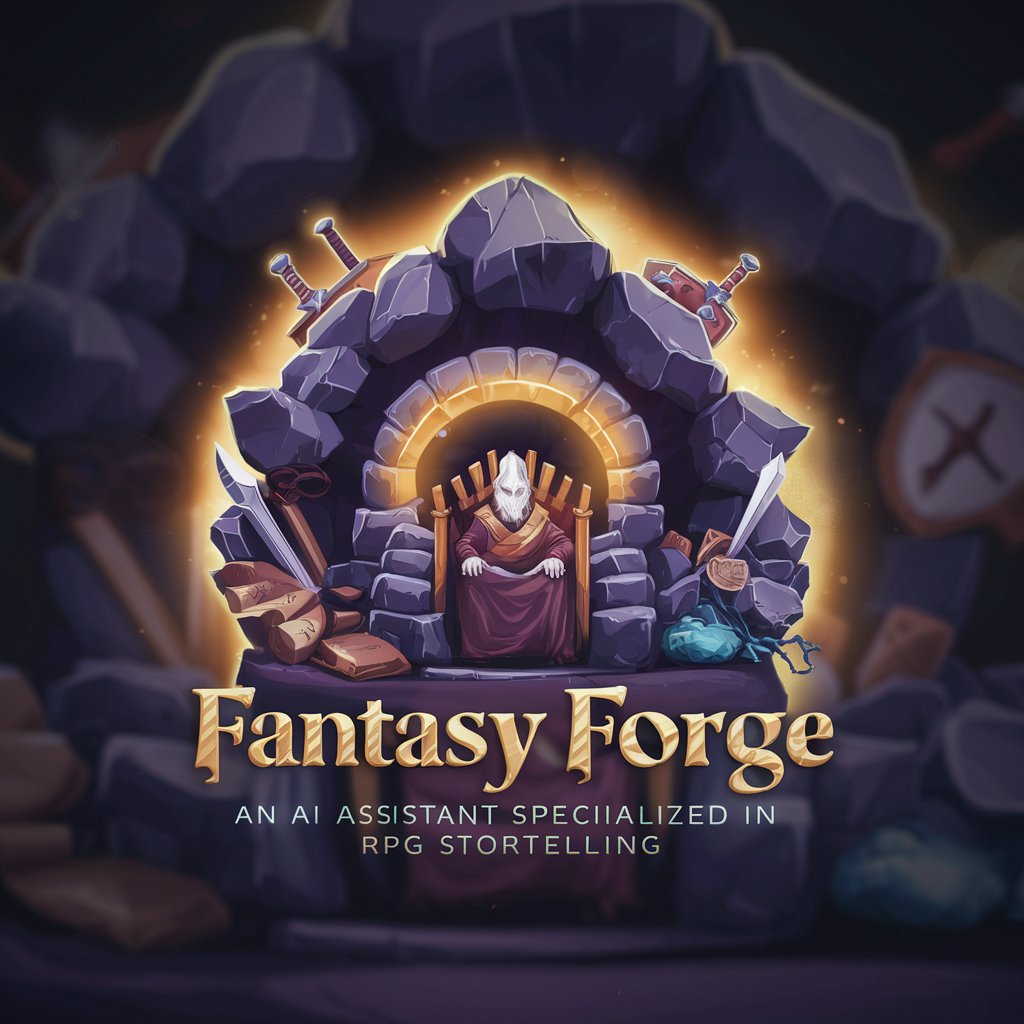
Math Tutor
Empowering your math journey with AI

Cheerful Panda
Elevate your day with AI-powered positivity.

Digital Diet Advice for Kidney Stone Prevention
Tailoring Your Diet to Prevent Kidney Stones, Powered by AI

JYKines Medical Fitness Program Design Assistant
Tailored Fitness at Your Fingertips

Customer Insight Analyzer
Empowering Decisions with AI-Driven Insights

英文要約
Summarize English texts into Japanese effortlessly.

親切なデータサイエンティスト
Unlocking Data Insights Intuitively

Detailed Q&A About Curious Socrates
What makes Curious Socrates different from other chatbots?
Curious Socrates distinguishes itself by specializing in Socratic questioning, fostering deep, meaningful conversations through a sequence of thoughtful questions. This approach encourages users to explore topics more thoroughly, promoting reflection and insight rather than providing direct answers.
Can Curious Socrates help with academic research?
Absolutely. Curious Socrates is adept at guiding users through the exploration of complex subjects, aiding in the formulation of research questions, critical thinking, and the synthesis of ideas, making it a valuable tool for academic research.
How can one get the most out of using Curious Socrates?
Maximizing the benefits of Curious Socrates involves posing clear, open-ended questions, being open to exploring different perspectives, and using the tool's ability to delve deep into subjects to gain new insights and understanding.
Is Curious Socrates suitable for personal development?
Yes, Curious Socrates is highly suited for personal development. Its method of engaging users in deep, reflective conversations can facilitate self-awareness, promote critical thinking, and help individuals explore their beliefs, values, and goals.
Can Curious Socrates be used for professional development?
Certainly. Professionals can use Curious Socrates to hone their problem-solving and critical thinking skills, explore industry trends, and challenge assumptions within their field, thereby enhancing their professional growth and competence.
